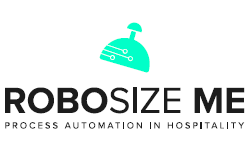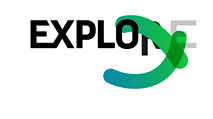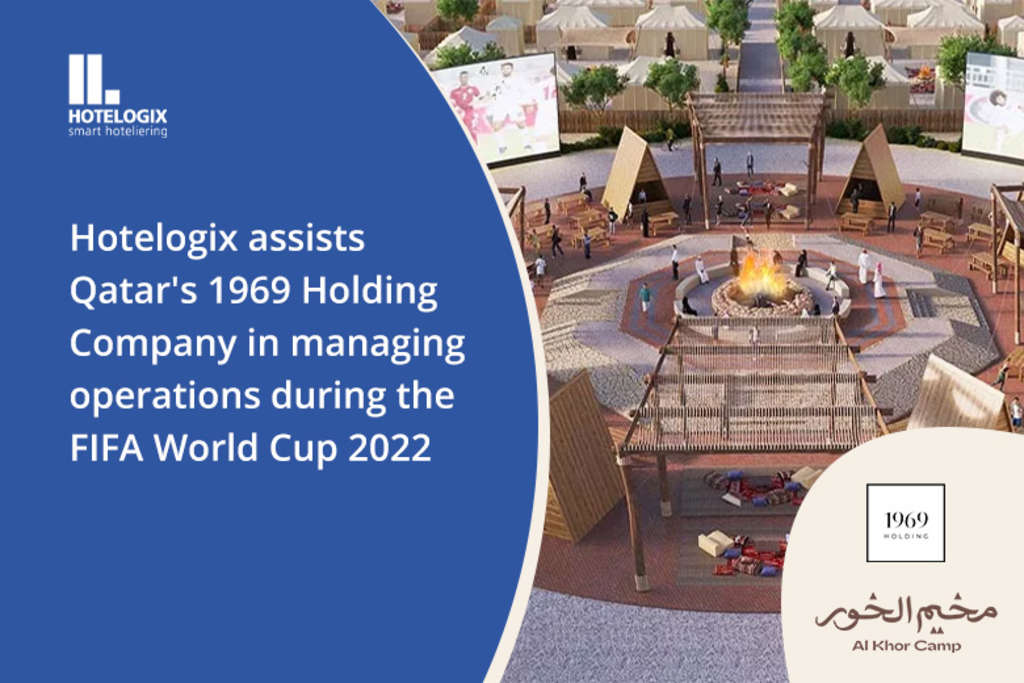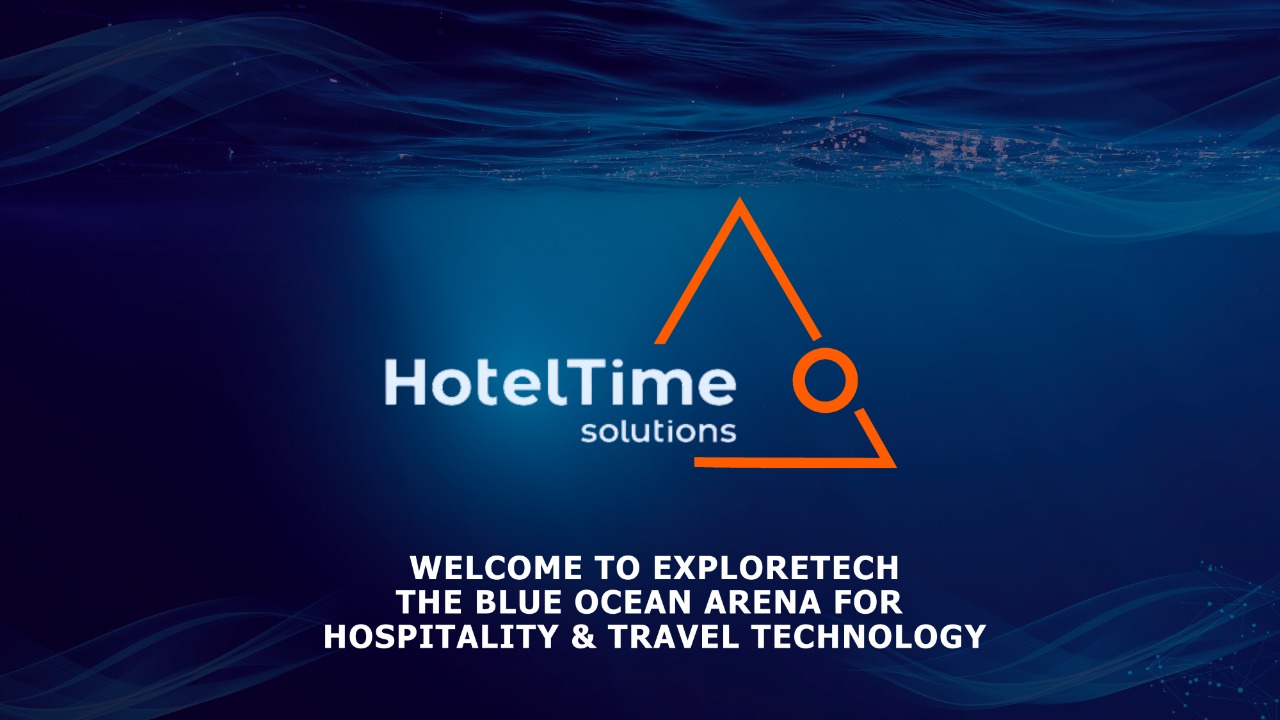
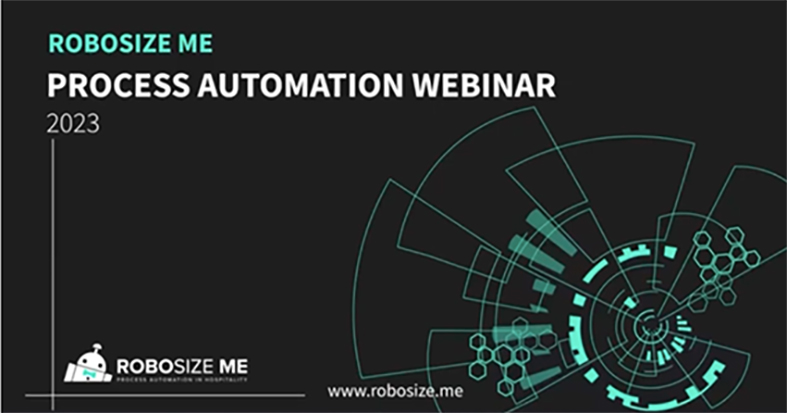
The RobosizeME Process Automation Webinar brought together industry leaders and experts in the robotic process automation and hospitality sectors to discuss the transformative power of automation. Hosted by Stephen Burke of RobosizeME, the webinar featured insightful discussions with Andrew Arthurs from Aimbridge Hospitality, Boris Krumrey from UiPath, and Wietse Bijzeit from Sircle Collection, highlighted the importance of process automation in revolutionizing the hospitality industry and shared valuable insights on how to leverage automation effectively.
Getting Started with Process Automation
The experts unanimously emphasized the significance of starting the RPA journey with a focus on efficiency rather than immediate return on investment. They advised against overcommitment and suggested starting slow to ensure a smooth transition. Key recommendations included establishing a governance model and prioritizing security measures to safeguard sensitive data. Additionally, making the automation journey enjoyable for all teams and involving individuals who are intimately familiar with the processes proved essential in identifying automation opportunities and facilitating gradual expansion.
Why Hospitality Needs Process Automation
Boris Krumrey, representing UiPath, shed light on the high potential for automation in the travel and hospitality market. Citing a McKinsey study, he revealed that an astounding 66% of hospitality processes can be automated, promising significant value for the industry. Successful automation examples were shared, showcasing improved reporting accuracy, revenue recovery, and streamlined management of bookings and reservations. The application of automation extends beyond these areas, with potential for automating customer service, loyalty programs, and back-office operations in the hospitality industry.
Added Value for Hoteliers
Andrew Arthurs, from Aimbridge Hospitality, highlighted the added value that intelligent AI-driven process automation brings to hoteliers. This advanced automation eliminates the limitations of previous methods by optimizing workflows without relying on imperfect human intervention. Arthurs emphasized the importance of accurate and reliable data transfer between systems during transitions, which can be achieved through automated checkpoints. Furthermore, he discussed the enhancement of results achieved through process automation, addressing a major limitation of earlier RPA iterations. While AI solutions such as chatbots offer benefits, Arthurs stressed the need for control and monitoring to achieve desired outcomes, ensuring a balanced approach that combines AI capabilities with human oversight.
Process Automation: Hoteliers Sharing Their Experience and Benefits
Hoteliers are increasingly leveraging process automation, particularly through the implementation of RPA, to drive efficiencies within their organizations. Andrew Arthurs highlighted various use cases where RPA bots automate manual processes in back-office functions such as accounting and finance. These include exporting reports, reconciling bank accounts, managing cash requirements, and automating disabling of accounts for individuals who fall victim to phishing emails. Wietse Bijzeit from Sircle Collection shared their experience implementing next-gen technology and leveraging APIs to integrate payment platforms and property management systems for data reconciliation. They explored automation opportunities in areas like reservation creation and processing loyalty data, saving significant time for their teams.
What is Intelligent Process Automation and AI as an Enhancer of automation?
UiPath introduced the concept of intelligent process automation (IPA), which combines RPA with AI capabilities to achieve a more advanced level of automation. The platform incorporates computer vision technology for accurate object identification and provides tools for process mining, task mining, and low-code web application development. UiPath stands out as one of the few platforms allowing the uploading of python-based machine learning models and harnessing generative AI capabilities. The introduction of IPA promises to revolutionize customer service by enabling voice-enabled interactions and zero-touch automation for standard tasks. Complex decision-making and interactions will be augmented with AI, enhancing both customer service and back-end operations. The productivity and capacity gains achieved through IPA will be balanced with the continued importance of human decision-making.
In conclusion, the RobosizeME Process Automation Webinar highlighted the transformative power of process automation in the hospitality industry. With experts sharing valuable insights and experiences, the webinar demonstrated that automation has the potential to revolutionize various aspects of the industry, ranging from front desk operations and customer service to back-office functions like accounting and finance. By adopting intelligent process automation, hoteliers can optimize workflows, improve efficiency, and enhance customer experiences while maintaining the essential role of human oversight.
CLICK HERE to view the full webinar
